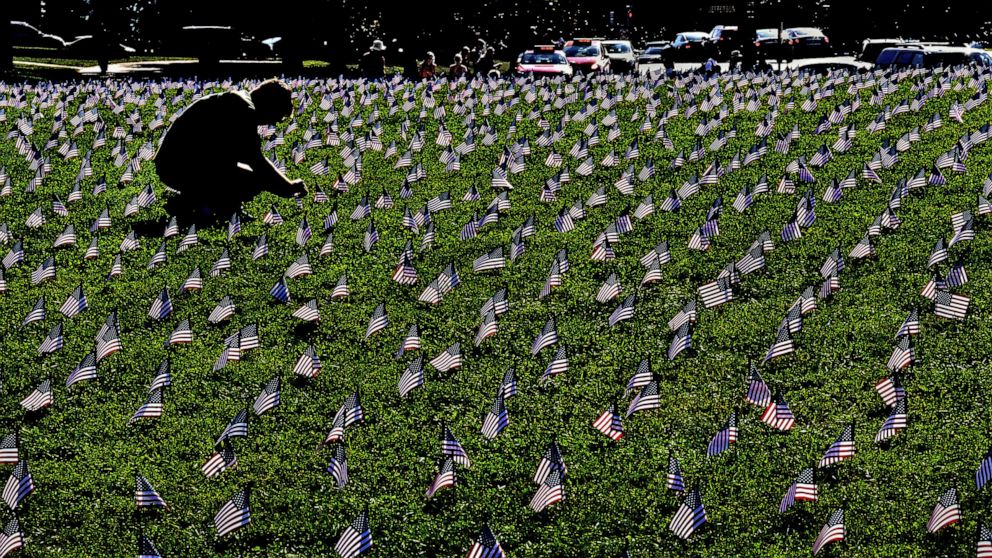


The number of suicides among military veterans dropped to its lowest rate in over a decade, according to a report released Monday by the Department of Veteran Affairs. The latest figures come days after a national suicide prevention nonprofit said the federal agency was underestimating the problem.
After instances of suicide rose among veterans from 2001 to 2018, the VA's annual report documented a near 10% decline between 2018 to 2020.
The VA recognized 6,146 deaths from suicide among veterans in 2020, the most recent year with reportable data. This was 343 fewer instances than recorded in 2019, marking the sharpest decline since 2001. (By contrast with veterans, according to Pentagon data, there were 580 suicides among current service members in 2020.)
The drop in veteran suicides persisted during the onset of the COVID-19 pandemic in March 2020. The VA cited strengthened mental health programming, clinical support, community collaboration and paid media campaigns as important intervention methods for veterans in crisis.
But Monday's report also acknowledged that there was still work to be done to create more comprehensive resources.
MORE: Military suicide deaths increase but not seen as linked to COVID-19 pandemic"Unemployment, chronic pain, insomnia, relationship strain, homelessness and grief are examples of factors outside of mental health that may play a role in suicide," the report states. "We must also move beyond the individual factors in suicide and look to address broader international, national, community and relational factors that play a role."
The VA said it remains cautiously encouraged by the drop in the suicide rate. The 10% decline between 2018 and 2020 is close to double the 5.5% reduction among non-veteran adults over the same two-year period.
The issue is still disproportionately impacting former service members. The report determined that in 2020, the age- and sex-adjusted suicide rate for veterans was more than 57% higher than non-veteran adults.
The VA found that on average in 2020, 16 veterans took their lives each day.
That may be an undercount, outside advocates say: A report released Saturday says the number could be closer to 24. America's Warrior Partnership, a national suicide prevention nonprofit, found that when factoring in unexplained or accidental deaths as well as county record-keeping mistakes, the suicide rate was 37% higher than the VA estimated between 2014 to 2018.
America's Warrior Partnership said this discrepancy is "likely due to undercounting of [former service member deaths] and the greater specificity of the decedent's demographics, military experience, and death details available" to the nonprofit.
While America's Warrior Partnership was working alongside Duke University and the University of Alabama using death records from eight states corroborated with the Department of Defense, the VA was using data from the Centers for Disease Control and Prevention and the Department of Defense.
MORE: Marine veteran walked 810 miles in 42 days for veteran suicide awarenessThe independent investigation, labeled "Operation Deep Dive," also found unique risk factors that influenced a former service member's decision to kill themselves. The report found the longer someone served in the military, the less likely they were to commit suicide, by a declining rate of 2% per year served.
The report also assessed that a demotion during military service was associated with an increased suicide risk of 56%.
America's Warrior Partnership has requested the VA share its current data to better collaborate and make recommendations that would support former service members considering suicide.
"We need everyone at the table, leveraging work within and outside of clinical health care delivery systems to decrease both individual and societal risk factors for suicide," the VA stated at the conclusion of its report. "The public health approach reminds us that what we do can and does make a difference."